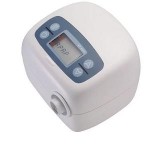 Snoring may seem harmless enough, but it isn’t necessarily innocuous.
Snoring may seem harmless enough, but it isn’t necessarily innocuous.
If you’re a loud snorer, your body may be trying to tell you something vital about your own health, so it’s important to consider your particular snoring “style” and what it might mean.
Since strong, intermittent snoring is often a symptom of obstructive sleep apnea, it’s worth learning more about this sleep disorder and how to treat it.
To help you get the information that you need, we’ve compiled a quick guide to snoring and its connection to the serious sleep disorder known as obstructive sleep apnea.
Snoring is a Primary Symptom of OSA (Obstructive Sleep Apnea)
Since forty to fifty percent of people snore at least sometimes, it’s important to determine whether or not snoring is truly harmless, or whether it’s indicative of an underlying sleep disorder like obstructive sleep apnea.
If you sleep with a partner or doze where others are around to see and hear you, ask them how your snoring sounds and how you breathe. Is your snoring steady, or occurring in intermittent spurts all night long? Is it relatively quiet, or super-loud?
Typically, people with sleep apnea snore quite loudly. If you snore in this very noticeable manner, you may well have obstructive sleep apnea.
Another red flag for sleep apnea is stop-starts in breathing that occur between snoring jags, so any information about how you breathe will be useful. If you’re living alone, consider recording yourself to listen to your breathing (and snoring).
If you’ve got all three symptoms, you should definitely ask your family doctor for a sleep study test that will confirm the presence (or lack thereof) of OSA.
Sleep Apnea May Cause Long-term Damage to Your Health
Sleep apnea causes some pretty harsh symptoms, and it has the power to damage your health permanently. Since this disorder causes stop-starts in breathing that happen over and over again all night long, it’s actually quite dangerous.
During the day, people with sleep apnea feel extremely tired, even though they’ve “slept” for a full eight hours. They just don’t get the airflow that they need to enjoy restful sleep, and their bodies grow wearier and more susceptible to disease or illness with every passing night.
Examples of diseases that are linked with untreated sleep apnea include diabetes, high blood pressure, and heart problems.
More side effects and complications from obstructive sleep apnea include mental fog, morning headaches, mood swings, and loss of coordination (due to fatigue). People with untreated sleep apnea carry a heavy burden, but they don’t have to suffer.
All it takes to get better is therapy with CPAP machines and CPAP nasal masks. Unfortunately, most people who snore don’t realize that they may have OSA, and many people who know that they have OSA don’t know about the benefits of CPAP therapy…
Get a CPAP Machine to Get a Decent Night’s Sleep
 When you purchase an affordable CPAP machine from a reputable CPAP dealer, you’ll get the care that you need to beat the symptoms and side effects of sleep apnea.
When you purchase an affordable CPAP machine from a reputable CPAP dealer, you’ll get the care that you need to beat the symptoms and side effects of sleep apnea.
Today’s most impressive CPAP machines are still very affordable, and the cost of these machines may be covered by your medical insurance.
When you start CPAP therapy, you’ll wear a soft and supple nasal mask while you sleep. This mask will be hooked up to your CPAP machine with soft tubing. By pressing a button, you’ll access pressurized airflow that stops the jagged breathing and loud snoring that is characteristic of sleep apnea.
Most people get used to their new CPAP units within days, and almost all can’t believe how good they feel when they wake up in the morning. CPAP therapy is life-changing, and it’s also designed to protect your health over the long term.

1 thought on “Is Your Snoring a Health Risk?”
I dont have sleep apnea but the snoring and insomnia was almost to much to bear. Thanks for the online information you have provided regarding this treatment.